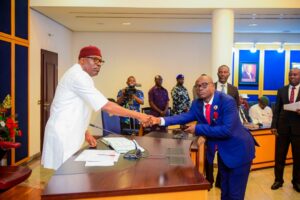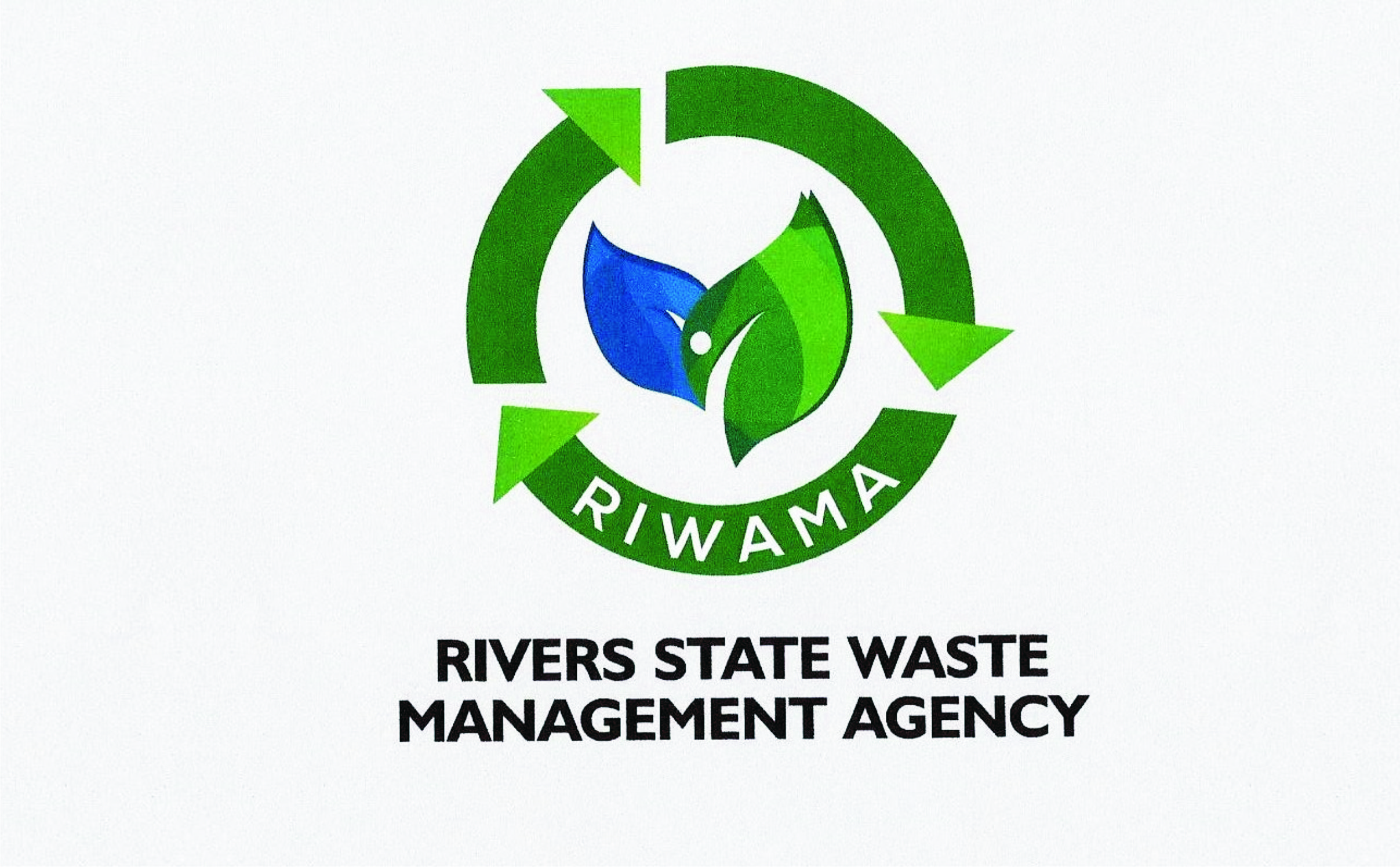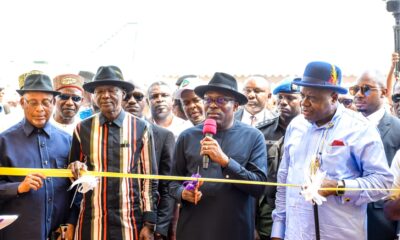News
2023: E-Voting, Transmission Of Results, Way To Go, Jonathan Insists
As the debate and calls by Nigerians over the workability of e-voting and transmission of results continue to be on the front burner, former President, Dr. Goodluck Jonathan, has insisted that electronic voting is the way to go.
Jonathan, who stated this while delivering the inaugural lecture of Course 30, National Defence College, titled, ‘’Human Security and National Development: The Whole Society Approach’’, said: “if we as a nation, truly desire to secure the credibility and integrity of our elections, if we truly desire to deepen the roots of democracy in our land, we should not seek to reverse the progress already recorded by INEC in the application of modern tools in the conduct of elections but aim to improve the processes in the light of new technology.
“It is difficult, therefore, to understand why the argument against the possibility of electronic transmission of election results continues to subsist, despite all the advancements made in information and communication technology over the years.
“There is no doubt that the independence of the electoral management body is the key plank upon which a thriving democracy rests. In Nigeria, the agency with the constitutional responsibility for this role is the Independent National Electoral Commission (INEC).
“There is the need for those involved in the ongoing electoral reforms to review their efforts and ask themselves some tough questions.
‘’That way, they will be able to determine whether they are advancing the course of democracy by working to enhance and protect the constitutionally guaranteed duties of INEC or seeking to encumber the body with unnecessary posturing, capable of negatively affecting the exercise of its independence, in the conduct of elections.’’
Addressing issues associated with security challenges plaguing the nation, Jonathan said: “Fear is a key factor in human security and development. Fear is central to human security.
‘’It is a painful emotion or passion excited by the expectation of evil, or the apprehension of impending danger. Generally fear, to a large extent, determines the level of economic growth in a nation, in almost all sectors. There is indeed a corresponding relation between fear and economic growth.
“Nations where people live in fear tend to record reduced economic activity and less development than others. In many circumstances, the fear factor in human survival, prosperity and security requires that more should be done to restore hope in the people and in their economic well-being.
“Farmers who harbour fear about their personal security will be too scared to go to their farms, as is the case in many parts of the country. For an agrarian economy like ours, it is not good news if farmers are abandoning their farms because of fear.
“The economy will generally take a hit if traders and merchants for instance are not confident enough to open for business because of the fear of the menace of state and non-state actors in the field of security.
“If the economic environment and the investment climate are not reassuring enough to an industrialist, he may not venture into building that factory that could provide employment to many youths. Even those already operational, risk shutting down if the fear factor in a society is not addressed.
“How about the school environment? Is it safe enough for the pupils, students and their teachers to remain in the classrooms and sustain the education cycle which is the engine of growth and basis for innovation and survival of a nation.
“The same is applicable to places of worship which are responsible for moulding the minds and hearts of members of the society. Are Christian and Muslim faithful free to conduct their worship in an atmosphere devoid of fear?’’
In his address, Commandant of the National Defence College, Rear Admiral Oladele Daji, disclosed that 99 participants from the Nigerian Army, the Nigerian Navy, the Nigerian Air Force, the Nigerian Police, Para-military organizations, MDAs as well as officers from 15 foreign countries were participating in the course.
Chief of Defence Staff, General Leo Irabor represented the Minister of Defence, Maj-Gen Bashir Magashi (rtd) at the occasion.
News
Enforce Discipline In Legislative Service, Fubara Charges New RSHA Commission

Rivers State Governor, Sir Siminalayi Fubara, has charged newly sworn-in chairman and members of the State House of Assembly Service Commission to achieve greater productivity, promote highest standard and insist on best practices in the discharge of Legislative services.
Governor Fubara also urged them to ensure that parliamentary staff are put through disciplinary conducts in the discharge of their duties in the service.
Governor Fubara gave the charge shortly after the chairman and members of the Rivers State House of Assembly (RSHA) Service Commission were sworn-in at the Executive Chamber of Government House in Port Harcourt, last Friday.
The Governor also sworn-in the chairman and members of the Rivers State Local Government Service Commission.
Hon Tamunosisi Gogo-Jaja, is the chairman of RSHA, with Dr Kennedy Ebeku, Hon. Soberekon Clark, Hon. Jones Ogbonda, and Hon Kingston Sylvanus as members.

For the Rivers State Local Government Service Commission, Hon GoodLife Ben will serve as the chairman, with Chief Emmanuel G. Jaja, Ms. Betty Warmate, Barrister Jerome Chimenem, Hon Prince O. Ohochukwu, Barrister Philip Okparaji, and Christian Amadi as members.
Governor Fubara explained that the constitution and swearing-in of the respective commissions were delayed with the hope that all former members of the political block will come back together but quickly added that such expectation is dashed now as governance has to move on.
He said: “As it stands now, our position is very clear. The ship that we are onboard is clear, and the activities of governance have to continue.
“So, this swearing-in is to give these two units of government – particularly, the House of Assembly Service Commission, a formal commission so that you can start carrying out the activities of promotion, discipline and every other thing that has to do with the legislative staff activity.”
Governor Fubara emphasised: “This assignment is not business as usual. You have to take full charge, and you have to ensure that there is discipline in the service.”
Speaking on the Local Government Service Commission, Governor Fubara said an acting Chairman was previously appointed to hold brief while the situation was being studied but quickly added that as it stands now, a full fledged commission has to be constituted to steer affairs.
Governor Fubara stated that the various Local Government Councils have been mandated to commence payment of the N85,000.00 Minimum Wage to their workers.
However, Governor Fubara said that mandate had met with series of complaints about ghost workers or inflated payroll staff list, which required proper scrutiny in order to ensure that only genuine workers benefit.
He said, “You must ensure that you support the Local Government Chairmen to get rid of those fake names in the payroll, so that when they implement the N85,000.00 Minimum Wage, it will not be too much burden on them.
“I am not saying you should go and dismiss people who are genuinely employed. Hear me very well: there must be proper scrutiny to be sure that whoever is there must be a genuine civil servant employed by the commission, and must have met all the conditions.”
Governor Fubara also directed the commission to address the issue of staff stagnation on a particular grade level, which is an ugly practice, and make sure those due promotion truly benefit from statutory progression in the service.
He said, “The second side is, you have the issue of promotion, you must also ensure that they are adequately promoted so that they can start enjoying like their counterparts in the mainstream.
“There is too much dragging of their promotion, for somebody to be on Grade Level 4 for over 30 years is not good. It is not good news.”
Governor Fubara maintained: “I believe strongly that you will not allow yourselves to be corrupted like those stories that we used to hear. Make sure that there is acceptable level of discipline and standard in the Local Government Service Commission.
“I also believe strongly that you are already prepared for this assignment, and since you are prepared, I will charge you to go do what you know how to do best. Be assured that the government will give you all the necessary support.”
Governor Fubara noted that the task before them could seem Herculean but they should be assured of support from his administration to drive the assignment given to them to reckonable success.
News
Be Innovative In Waste Management, Fubara Tasks RIWAMA ….. Inaugurates Six-Member Board

Rivers State Governor, Sir Siminalayi Fubara, has said that the open dumping of wastes has to be replaced with a more innovative and efficient disposal method so that wastes can be taken off the streets and turned into income-yielding ventures.
Governor Fubara made the assertion while giving charge to the newly constituted Board of Directors of the Rivers State Waste Management Agency (RIWAMA) and its Managing Director at Government House in Port Harcourt, last Friday.
The Board members included Engr. Edward Namiesimagh as the chairman, while Hon. Bishop Best, Dr. Ipalibo Sogules, Richard Mazi, and Civian Y. Nwibari are members, with Hon. Orukwem Amadi-Oparaeli as the Managing Director.
Governor Fubara said waste disposal and management have remained a major global concern, adding that over the years, successive administrations in the State had struggled to take wastes off the streets but ended up taking them to other dumpsites where they constitute nuisance and environmental hazards.
He said, “Today, I am here putting a team together to look at these challenges differently. Let it not be the regular pattern whereby at the end of the month, you come to collect money from me for payments.
“Don’t indulge in appointing your friends as sweepers, evaluators of debris, then you start building hotels, or buying big cars. Let us go beyond that and tap into the potentials of waste management.
“It is an area in this world that there is so much money in. It is an area that creates employment, and generates huge revenue. It is not just depending on what I will give to you. Consider what change you’ll bring to the work, that’s what I want to see in Rivers State.”
Governor Fubara told them that they were carefully selected because of the experiences they had garnered in their previous public assignments, and urged them to replicate their successes on a bigger scale with the new appointment.
The Governor advised them to work assiduously to bring back the beauty of Port Harcourt with effective waste disposal drive, and ensure the city is clean and green to reflect its old Garden City status.
Governor Fubara emphasised: “If not for our effort, today, some people could have even changed it to become Garbage City. But God forbid, it is not going to be in our own time.
“I want you to understand that I feel very unhappy with the sight I see. When you are driving into Port Harcourt, one of the first things that will welcome you is the waste dump that you see along the Obiri-Ikwerre-Airport Road. I don’t feel happy about it.
“Your first task should be to relocate it. That particular place needs to be completely closed because it is the entrance to the city. You need to get a new place where we can relocate our wastes.”
Governor Fubara urged them to be more responsible as they discharge their assignment, saying that it is more important to see results than being merely preoccupied with the aura of office.
The Governor warned that he will not hesitate to relieve anyone found wanting, and return the agency back to the era of a sole administrator running the affairs of the agency.
He noted, “This team cuts across all the Senatorial Districts, so that whatever you are going to do there, you ensure it spreads. While you are also carrying out this job, let it be known to the world that the interest of everybody in the State is accommodated.
“It shouldn’t be one-sided. Make sure that all our supporters who have the capacity and competence to do little jobs in the refuse area are also accommodated. I am serious. I have no doubt that you are going to impress us. So, I charge you to do all you can to make sure that the face of Port Harcourt changes when it comes to the issue of refuse.”
Governor Fubara told them to be good ambassadors of his administration as they interface with members of the public while also changing the face of refuse management in the State.
In his acceptance speech, Chairman of Rivers State Waste Management Agency (RIWAMA), Engr. Edward Namiesimagh, expressed appreciation to the Governor, on behalf of members of the Board, for finding them worthy to handle such difficult but surmountable task of keeping Port Harcourt clean.
He said, “When I see the calibre of people you assembled, all of us are happy, and I assure that with our period of experience in our fields and politics and interaction with people and the zeal that comes with this job, we assure you that we will do our best to make sure that the policy of restoring Port Harcourt to its lost glory is achieved with your support.”
News
Fubara Graces Agric Commissioner’s Wedding At Ciwa

Rivers State Governor, Sir Siminalayi Fubara, on Saturday, graced the solemnization of Sacrament of Matrimony between Engr Victor Kii, and his heartthrob, Engr Mercy Mankwe.
Engr Kii is the Rivers State Commissioner for Agriculture.
The wedding ceremony was held at Our Lady of the Holy Rosary Chaplaincy, Catholic Institute of West Africa (CIWA), along the Port Harcourt-Aba Expressway, Rumuibekwe in Obio/Akpor Local Government Area.
In his Homily, the Chief Celebrant, Bishop of the Catholic Diocese of Sokoto, Most Rev Matthew Hassan Kukah, said marriage is an enduring union, ordained by God for two persons – man and woman – who have decided in love to live their lives together.
Bishop Kukah stated that people in such Christian marriage should know that they are in an indissoluble union, bounded by faith, and advised them to gladly make personal sacrifices in tolerance and care for each other so that they can have a healthy, successful and rewarding life together.
In his vote of thanks, co-celebrant, Very Rev Monsignor Pius Kii, showered commendations on the Governor for his fatherly support to the family, and the numerous landmark achievements in various sectors across the State.
The clergy and the church took the opportunity to pray for the success and good health of Governor Fubara and his administration, and urged God to protect, guide and defend him at all times.
The church also presented 50th birthday cake and gifts to the Governor, and also sang birthday songs to accentuate the celebration.
Highlights of the event were the signing of the marriage register by the new couple, Victor and Mercy, and the cutting of the 50th Birthday cake by the Governor.
-
News3 days ago
Niger Republic Bars Nigerians With ECOWAS Passport
-

 Featured3 days ago
Featured3 days agoWe Support Rivers Workers To Feel Valued, Productive, Says Fubara …Inaugurates Bayelsa Labour House
-

 Niger Delta3 days ago
Niger Delta3 days agoBipi Celebrates Gen Asabuja On Birthday
-
Sports3 days ago
Former President Kicks Off New Bayelsa Stadium Project
-
Business3 days ago
NESGAS, Cakasa Sign Deal For 50,000MT LPG Storage Facility In Rivers
-
Rivers3 days ago
Redeem Your Financial Pledges, Oxfam Urges Nations
-
Opinion3 days ago
Leveraging On Manpower Dev: Tai LG Model
-

 Politics3 days ago
Politics3 days agoN’Assembly Adjusts 2025 Budget, Raises Recurrent Expenditure

